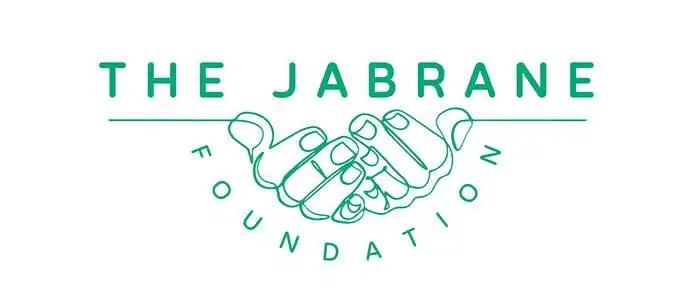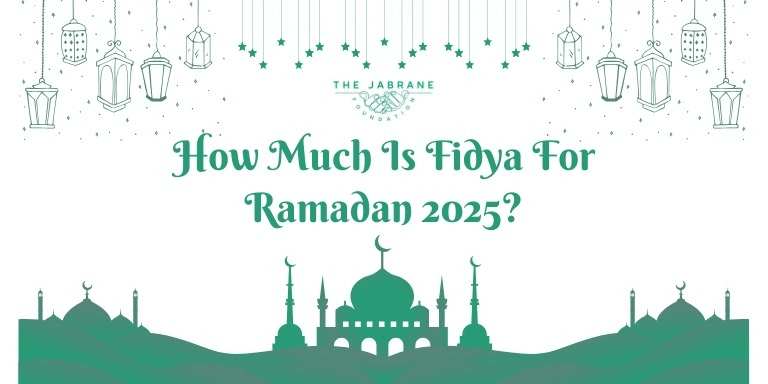Fidya is a charitable compensation that Muslims are required to pay if they are unable to fast during Ramadan due to valid reasons such as illness, old age, or pregnancy. It is an important aspect of Islamic teachings that ensures those who are unable to fast can still contribute to the spirit of Ramadan by helping those in need.
Some people are unable to fast due to long-term or chronic health conditions, and in such cases, Fidya for Ramadan 2025 allows them to fulfill their religious obligation in a different way. This blog will explain what is Fidya, how much it costs in 2025, who needs to pay it, and how it should be distributed.
What is Fidya?
Definition and Meaning of Fidya
Fidya is a form of compensation that Muslims must pay when they cannot fast due to a valid reason and have no hope of making up the missed fasts later. The payment is used to feed the poor, ensuring that the spirit of Ramadan remains alive even for those who cannot fast.
The Quranic Basis and Islamic Teachings on Fidya
Fidya is mentioned in the Quran in Surah Al-Baqarah (2:184):
“And as for those who can fast with difficulty, they have to feed a poor person as an alternative. But whosoever does good of his own accord, it is better for him. And that you fast, it is better for you if only you knew.”
This verse establishes the concept of Fidya, highlighting the importance of compensating for missed fasts by feeding the less fortunate.
Who is Required to Pay Fidya?
Not everyone who misses a fast is required to pay Fidya. It applies only to:
- Elderly individuals who cannot fast due to weakness.
- People with chronic illnesses that prevent fasting.
- Pregnant or breastfeeding women if fasting harms their health or their baby’s.
- Travelers facing extreme difficulties who cannot make up the fasts later.
Who Qualifies for Zakat in Islam?
How Much is Fidya for Ramadan 2025?
The Standard Fidya Amount Per Missed Fast
The Fidya for Ramadan 2025 is determined based on the cost of feeding a poor person for one meal. The amount may vary by region, but generally, it is the equivalent of feeding one person two meals per day for each missed fast.
How the Fidya Amount is Calculated
Fidya is calculated based on the cost of staple food items such as wheat, barley, or rice. On average, the amount for each missed fast is around $5 to $10, but this can vary depending on location and inflation.
For example:
- If a person misses 30 fasts, they must pay Fidya for 30 meals.
- If the cost of feeding a person per meal is $5, then the total Fidya would be 30 x $5 = $150.
The Difference Between Fidya and Kaffarah
Many people confuse Fidya with Kaffarah. The key differences are:
- Fidya is for those who are unable to fast due to valid reasons and have no hope of making up for the missed fasts.
- Kaffarah is a penalty for deliberately breaking a fast without a valid reason. Kaffarah requires fasting for 60 consecutive days or feeding 60 poor people.
How to Calculate Zakat on Gold 2025?
Factors That Affect the Fidya Amount
The Cost of Feeding a Poor Person
The cost of feeding a poor person varies significantly based on geographical location. In developed countries where the cost of living is high, food prices are generally more expensive, leading to a higher Fidya amount. Conversely, in developing nations where food costs are lower, the Fidya amount is adjusted accordingly to reflect the local cost of feeding a needy person. This ensures that the compensation remains fair and reasonable for both the donor and the recipient. Islamic scholars and organizations set Fidya rates based on the average cost of staple food items in each region, making it crucial for Muslims to check local guidelines before making their Fidya payment.
Variations in Fidya
The Fidya rate is not fixed globally; it fluctuates depending on economic conditions in different parts of the world. Factors such as inflation, food scarcity, and regional disparities in wealth can all impact the cost of food, leading to variations in Fidya. For instance, if inflation causes food prices to rise, the Fidya amount will increase to reflect the higher cost of feeding a poor person. Many Islamic charities and organizations adjust Fidya rates annually, taking into account changes in food prices and economic stability. This ensures that the donations remain meaningful and sufficient to provide adequate meals to those in need.
Why Fidya Rates May Change Each Year
Fidya rates are subject to annual adjustments due to fluctuations in food prices, economic shifts, and supply chain disruptions. In some years, food shortages or global crises may lead to significant increases in the cost of basic commodities, affecting Fidya calculations. Additionally, currency exchange rates can impact the purchasing power of donations made in one country but used to support people in another. To ensure fairness, many Islamic organizations and religious authorities reassess Fidya rates each year based on market trends, making it essential for Muslims to stay updated and pay the correct amount for Fidya for Ramadan 2025.
How to Calculate Zakat in Islam 2025
How to Pay Fidya?
The Proper Way to Distribute Fidya
Fidya should be used to feed the needy directly or donated to charities that will distribute food on behalf of the donor. It is essential to ensure that the donation reaches deserving individuals.
Organization That Accept Fidya Payments
There are many charities working to distribute Fidya effectively, but the best foundation is the Jabrane Foundation. They specialize in helping those in need and ensuring that Fidya reaches the right people. To make a Fidya payment through them, visit their official website.
Paying Fidya Online vs. Donating Directly to Those in Need
Many Muslims prefer to pay Fidya for Ramadan 2025 online through trusted platforms, ensuring their donations are distributed appropriately. However, direct donations to individuals in need are also accepted, as long as they fulfill the requirement of feeding the poor.
Who is Eligible to Receive Fidya?
The Recipients of Fidya According to Islamic Guidelines
Fidya should be given to individuals who are genuinely in need, such as:
- Poor families who cannot afford daily meals.
- Orphans and widows struggling financially.
- Refugees and displaced individuals.
Ensuring the Donation Reaches Those Who Truly Need It
When paying Fidya, it is essential to choose reputable charities or personally distribute food to those in need to ensure that the obligation is fulfilled correctly.
Faqs About Fidya
Can I Pay Fidya in Advance?
Yes, Fidya can be paid before or during Ramadan. Some scholars recommend paying early to ensure that those in need receive food in time.
Can Fidya Be Given in Money Instead of Food?
In most cases, Fidya should be given as food. However, many scholars allow monetary payments to charities that distribute food to the needy.
What Happens If I Can’t Afford Fidya?
If someone is genuinely unable to afford Fidya, they are not required to pay. Instead, they should seek forgiveness from Allah and make an effort to compensate in other ways, such as performing charity acts.
Conclusion
Fidya for Ramadan 2025 is a vital aspect of Islamic teachings, allowing those unable to fast to still contribute to the spirit of Ramadan. The Fidya amount depends on food prices, location, and economic conditions. It is essential to pay Fidya correctly and ensure it reaches those who need it the most.
Whether paying online or donating food directly, fulfilling Fidya obligations helps maintain the values of Ramadan by supporting the less fortunate. Always consult a local Islamic authority to confirm the exact Fidya rate in your area for 2025.



Pingback: Nisab Threshold For Different Countries | Zakat Nisab 2025